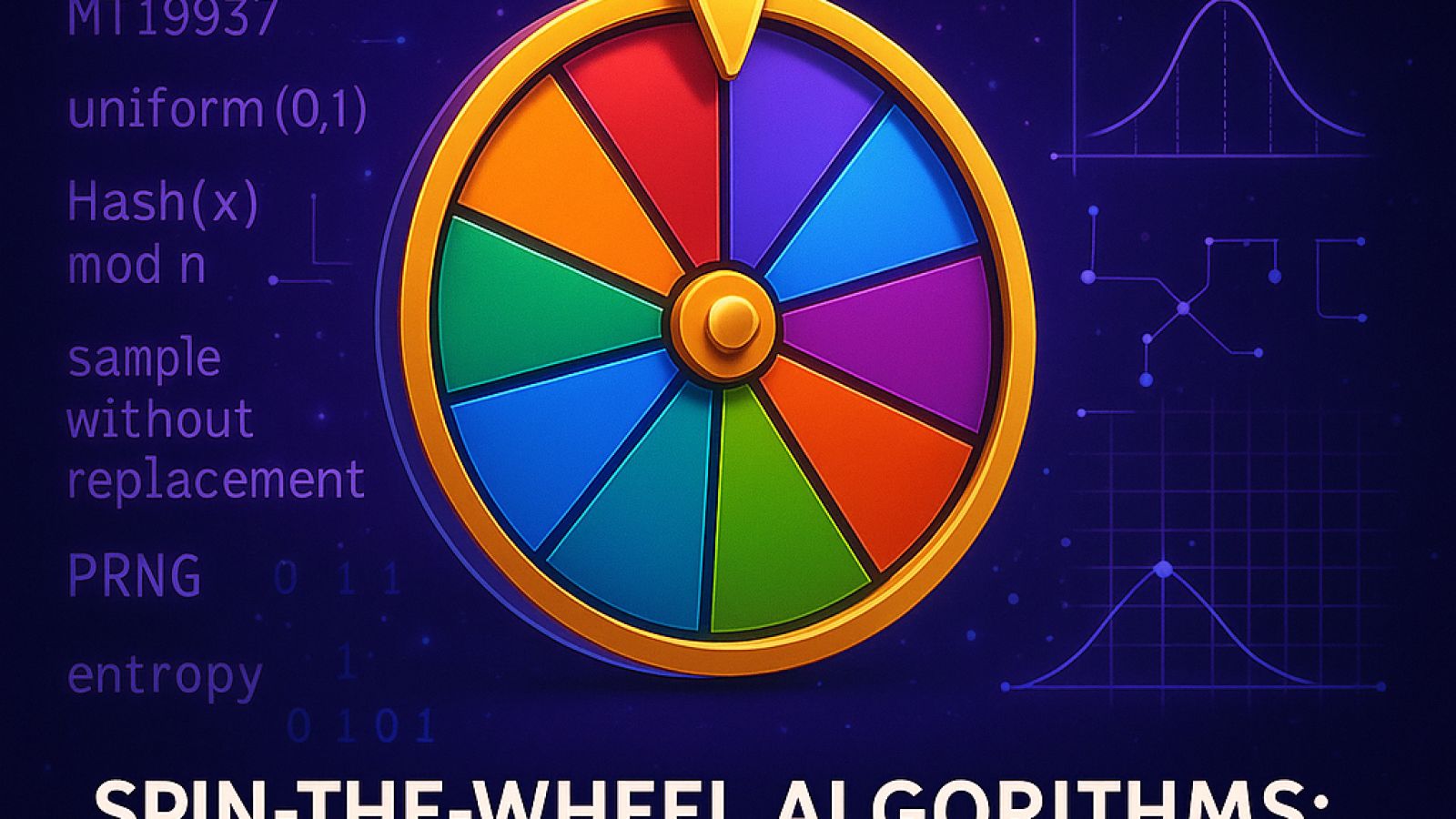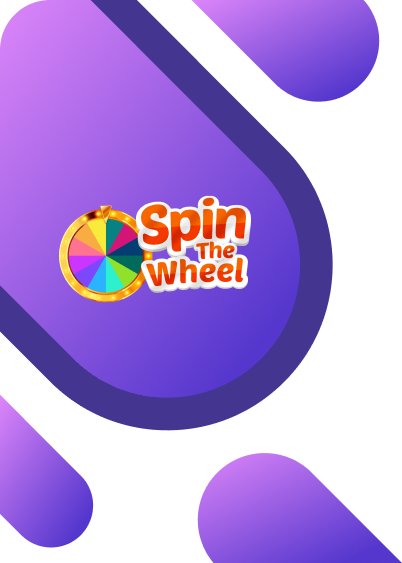???? Spin the Wheel Algorithms: How Randomization Actually Works
Have you ever tapped a “Spin the Wheel” button in a game, your heart pounding as the wheel slows down… only to land just one space away from the jackpot? ????
We’ve all been there. But here’s the real question: is it truly random, or is the game secretly deciding your fate?
Let’s peel back the curtain and explore how spin-the-wheel algorithms actually work, why randomness is more complicated than it seems, and what it means for players.
???? The Illusion of Randomness
When you spin a digital wheel, you might imagine there’s some magic force tossing your luck around. But in reality, most systems rely on pseudo-random number generators (PRNGs). These are mathematical formulas that create numbers that look random, but are actually generated from a seed value.
For example, a popular PRNG called the Mersenne Twister can generate billions of “random-looking” numbers super fast. But if you know the seed, you can predict the outcome — not very lucky at all!
???? If you’re curious, you can dive into how PRNGs work on sites like GeeksforGeeks.
⚖️ Random vs. Controlled Random
Here’s the fun twist (pun intended): not all wheels are designed to give equal odds. Some are weighted. That means the algorithm intentionally increases or decreases the chance of certain outcomes.
| Wheel Type | How It Works | Player Experience |
|---|---|---|
| Pure Random ???? | Every slot has the same probability. | Truly fair, but rare in profit-driven games. |
| Weighted ⚖️ | Some prizes are less likely to appear. | Feels random but favors the house. |
| Dynamic ???? | Odds change based on player activity (e.g., after losing too many spins). | Keeps players engaged but harder to trust. |
Think of it like a carnival booth: the ring toss looks fair, but the bottle rims might be just wide enough to make winning a near-impossible challenge. ????
???? Insight: Why Random Feels Personal
Humans are wired to look for patterns. That’s why, after spinning the wheel three times and missing the big prize, you might feel like “It’s bound to happen next time!” That’s the gambler’s fallacy, a well-studied bias explained in detail by Psychology Today.
An anecdote: I once kept spinning a daily reward wheel in a mobile game, convinced I’d eventually win the rare skin. Weeks later, all I had were coins I didn’t need ????. The system wasn’t out to get me — it was simply following probabilities.
????️ Behind the Code
Here’s a simple way to imagine the process:
1. Player taps "Spin"
2. Game calls PRNG for a random number
3. Random number maps to a segment on the wheel
4. Animation plays to land on that segment
But here’s the kicker: the animation is just for show. The result is decided the moment you tap. The spinning, slowing down, and dramatic near-misses are pure theater to make the experience more exciting ????.
???? A Visual Metaphor
Imagine a dartboard ????. Each wedge of the board represents a possible prize. A computer doesn’t actually throw a dart — instead, it uses math to pick a number and then pretends the dart landed there.
Here’s a little text diagram to picture it:
[Big Prize]
/ \
[Coins] [Boost]
\ /
[Small Prize]
Looks random, feels random… but it’s all coded.
???? Where Randomness Really Matters
Not all randomness is created equal. For casual mobile games, PRNGs are enough. But in cryptography or online gambling, randomness has to be provably fair. That’s where true random number generators (TRNGs) come in. These rely on unpredictable physical processes like atmospheric noise or radioactive decay.
For example, Random.org uses atmospheric noise to generate real randomness. Casinos and blockchain systems often rely on these methods to prevent manipulation.
???? Key Takeaways
-
???? The wheel is an illusion: the outcome is decided by an algorithm before the spin animation.
-
???? Most systems use PRNGs, which are fast but not truly random.
-
⚖️ Some wheels are weighted to favor the game, not the player.
-
???? Our brains make randomness feel personal, but probability doesn’t keep score.
-
???? For high-stakes uses like security or gambling, true randomness is essential.
❤️ Wrapping It Up
Next time you spin that wheel and groan when it stops one slot away from glory, remember: it’s not luck hating you — it’s math doing its job. ???? The beauty of spin-the-wheel algorithms is that they blend psychology, probability, and entertainment into one thrilling moment.
And honestly? Even when I know the math, I still can’t resist hitting that “Spin Again” button. Because deep down, hope is the ultimate algorithm ❤️????.
???? What about you? Have you ever felt the wheel was “rigged” against you? Or maybe had a streak of unbelievable luck? Share your story in the comments — I bet it’s more about numbers than fate ????.



